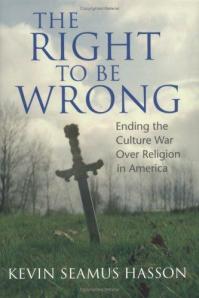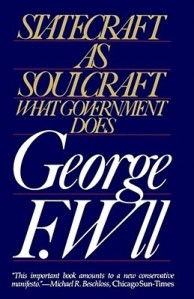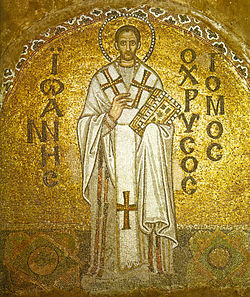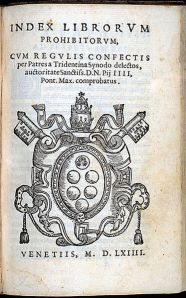An excellent excerpt from Albert Mohler’s recent interview with Robert Tracy McKenzie (from about 9-15 minutes into the interview). It is well worth your time. (there are also recent reviews of the book by William Thomas Mari at Books & Culture’s site and by Thomas S. Kidd at Christianity Today’s site).
Mohler: So, what do we do with the past? There it is, and it’s your business as a professional historian and as a professor of history to help a generation of students and beyond—the reading and learning public—to understand how to come to terms with the past. So where do we get started?
McKenzie: I think we start first of all with the kind of attitude of expectancy. Rowan Williams, who is the former archbishop of Canterbury, writes in one of his books that we should expect gifts from the past. I think about that and feel very strongly about that. We are entering into a conversation that transcends generations, centuries, millennia, about permanent questions of importance. And we go into that conversation expecting or open to the possibility of life-changing encounters and of hearing truths that in our own culture we are a little bit blind to. But having that expectancy for genuine education, I think we combine that with a kind of skepticism about our own biases and, in particular, a skepticism that reminds us of our tendency to recreate the past in our own image.
One of the things that I talk about in the book is a tendency that we have that goes hand in hand with our belief that the past is important, and that is a tendency to mine the past or search the past for ammunition rather than enlightenment. And so I think we need to be very careful. And I have come to the conclusion that part of what it means to think Christianly when we go to the past is actually to examine our own hearts at the front end of the process. And we ask ourselves, “What is it that we are looking for? Why does it matter to us?” And sometimes we go to the past simply for entertainment. But very often when Christians go to the past they think there is something at stake there. It’s because they already have made a certain kind of commitment to a public position and simply expect the past to provide the ammunition that allows them to prove the point to which they are already committed. And the danger with that is that we never learn anything. We find what we look for, and it may even be effective in a pragmatic way. But we’ll not encounter a fundamentally challenging way of thinking about the question that causes us to stop and pause and go back and reexamine what we understand.
Mohler: But it doesn’t actually gain much for us. My own academic network is at the intersection of historiography and theology in the field of historical theology. And the history of the church, and in particular the history of theology, reminds us that if we don’t get the whole story, at least as much of the story as we can get, we are going to miss very key issues and integral parts of argument and development without which, quite frankly, what we mine—to use your verb there—just isn’t going to be all that valuable to us, if we don’t know the story. It might be ammunition for the argument, but it doesn’t actually help us to understand how minds change and how issues were defined and how in a particular context we actually learn how, in the case of my research, the church in particular and the larger society around it was trying to think through various issues. And it seems to me that when you look at the kind of historiography you lay out—and you are writing to Christians very clearly in this book—you aren’t really saying that the past isn’t really important or valuable, but, rather—I don’t want to put words in your mouth—without it we basically aren’t having the kind of conversation with the dead that any mature, honest thinker needs constantly to have.
McKenzie: Absolutely. One of the verses that I come back to over and over again in the book, and also in my teaching, is from a rather brief allusion in the book of Job. One of the individuals that comes to interact with Job, a man named Bildad, who says to Job—and this is my paraphrase—but he tells Job that if you are trying to understand your situation, go to our fathers and go to their fathers and inquire of them, and inquire of former ages, and Bildad concludes, “for we were born yesterday and know nothing.” And I love that phrase. And I think when we seek wisdom while in the process shutting ourselves off from the ninety-three or ninety-four percent of human beings who have lived before us, there is a kind of incredibly arrogant provincialism to that. And I fully believe if we truly are committed to search for wisdom, then we have to practice what Chesterton called the “democracy of the dead”—we have to let those who have gone before us also have a voice in the conversation.
Mohler: Jaroslav Pelikan, who was the Sterling Professor of History at Yale, made a very similar point in which he said that the fact that one ignores history would make about as much sense as denying that one has ancestors. And he went on to say that the conversation with the dead, in this historical sense, is as necessary with the living, because the living are inexplicable but with reference to the dead. And, of course, you have C.S. Lewis—and I believe you cite this in your book—one of the most common references to history in the introduction to a work by one of the patristic fathers when he says that the temptation is to practice some form of chronological snobbery. And that is an intellectual fashion that seems to be very current in the academy at any given time.
McKenzie: Yes, absolutely. I love the phrase that Lewis uses there, “chronological snobbery.” He actually has offered many concepts to me that I have found very useful as a historian. In fact, my real appreciation for Lewis has grown as I have found more and more ways that his thinking actually enriches my thinking, historically.
Mohler: You know one of the things this raises is how his education is different from our own. By the time that C.S. Lewis was in high school, he had been steeped in history such that, according to one of his biographers, he was able to walk through the medieval eras as if he had spoken to people from them. And, of course, that informs his writings.
McKenzie: Yes, his education would have been steeped in ancient literature, language, and history. I think, if I understand correctly from his biographers, he was very troubled when the English universities began to introduce modern history, which was anything after the Reformation. So he was really one who was constantly drawing from a deep kind of legacy inherited from earlier ages.
Mohler: As I recall, he refused to teach any literature after 1830 simply because there was no way to know in one hundred years if the literature really had value. But that is the opposite of chronological snobbery, perhaps.
I want to go to something you wrote back in 2004. You were writing as a historian to historians about the generation you are now teaching. And I am going to read to you from an essay you wrote entitled, “Christians Teaching History.” You said this:
I find that the typical student who sits in my classes is both an historical objectivist and a philosophical relativist. When it comes to reading their textbooks or listening to my lectures, such students think in terms of cold hard facts. Implicitly, they believe that historical truths are objectively knowable, that they are easily ascertained, and that they should be universally acknowledged. When the topic turns from truths to truth, however, the ultimate questions about transcendent moral values or the existence of God, for example, they immediately become determined relativists.
I found that fascinating. Play that out for me.
McKenzie: It is good for you to dig out that statement from almost a decade ago. As you mentioned to your listeners at the outset, I did teach in a secular context for more than two decades. And one of the things that I was thinking about was ways in which to encounter the past and, in the process, naturally to raise eternal questions. And one of the things that did strike me in that process, as I went through in multiple iterations, was that students were very comfortable in compartmentalizing things. They were very comfortable in compartmentalizing issues that operate within what you might consider a disciplinary context, within the context of history, or of what it means to think historically, to set apart in one category of the mind totally separate from issues of purpose and meaning, issues that we would think of as leading to eternal questions with religious answers. And one of the things that was a challenge for me was to try to get students to reunify those two aspects of their thinking. And we find, when we study the past, permanent questions or eternal questions and press them to come up with internally consistent answers. I think it is an indictment of the modern, secular, decentralized university—very few students felt any pressure or any obligation whatsoever to have a consistent philosophy of life. It was a constant challenge to try to make an argument that that was not the way it ought to be.
Mohler: So you delivered a sermon of sorts. You say, “On the first day of each new class,” in that secular environment—just give a brief summary of that sermon because I think it will be very helpful.
McKenzie: Right, I called it “sermons for the secular classroom.” Teaching in a large research university that was aggressively secular, there were certain boundaries that I often felt and tried not to cross. But I tried to make arguments that were intellectually substantive that would, at the very least, encourage students to reconsider their fundamental understandings. And one of the sermons that I would often do is often a concluding lecture. I would challenge students to think about some of what we had observed when we had studied American history and to try to evaluate it.
We would talk about democracy as a system in which the majority has its way, and I would remind them that the removal of native Americans in the 1830s was democratic by that standard, and the support of slavery was democratic by that standard, and the creation of a segregated Jim Crow system in the late 19th century was democratic by that standard. And it was basically trying to push them into a corner to recognize that sometimes the majority isn’t right. And I think to believe and acknowledge that the majority is not always right raises enormous philosophical questions. Because if the majority can be wrong, then we have to understand some standard that obliges the majority, that restrains.
I would just say that I would bring students to the brink of that precipice to say where does that standard come from? And it seemed to me that there were just a few possible answers: that the standard would be something we invented or it would be something that we discovered from an existence outside of cultural construction. I tried to make the students feel uncomfortable. I’m not sure how effective I was, but one of the things that I just discover all the time is that students ultimately have been acculturated in the modern university to think that philosophical consistency was simply not that important.
Mohler: And so you ask them to consider history as a discipline that’s not just about things that happen in the past but rather a discipline that, to use your words, “engages the heart and requires inner work.”
McKenzie: The only reason for studying history, I would say. I would put on my syllabi that, at its best, to study the past is a conversation with the dead about what we should value and how we should live. If we do not encounter something in it that challenges us deeply about the values that we hold most dearly, there isn’t much point in studying it, I think.
[Begin commentary break]
Mohler: I think it’s really important that you had a professor here in a secular university, the University of Washington, presenting to students in that secular context, very much up-front and with intellectual honesty, lectures which he called “sermons to secular students.” Listening to how he describes that, reading about it in his writings, it leads me to believe that Christian students, indeed evangelical students, are often in need of those very same sermons.
[End commentary break]
Mohler: Professor McKenzie, this book is The First Thanksgiving: What the Real Story Tells Us about Loving God and Learning from History. Why this book? Why about the Pilgrims? Why now?
McKenzie: Great question. For me, it began and has been evolving as a personal goal. I have spent most of my academic career doing what academics do, which means primarily producing scholarship for other academics. And I really began to come under the sense of conviction to communicate and connect in some way with Christians outside of the academy. And as I began to think about that, what I felt called to do was really enter into conversation with Christians about the intersection between our faith and our encounters with the past. What it might mean to “think Christianly,” if we want to use that phrase about the past. And I thought, I can write a very dry sort of abstract treatise on the topic and have an audience of a handful. Or maybe there is another way to go about it. Maybe there is a way to revisit the familiar story, a story that Americans would find accessible and might find intrinsically important, and use that story as a context within which to model what it would mean to be responsible in one’s encounter with the past.
So I decided, as I thought about it more and more, that the first Thanksgiving episode had a lot of ingredients that were really key, also that the Thanksgiving holiday we impute much religious significance to. It is actually a civil holiday, however; it is accorded by the state and not the church. And then we associate it with a particular historical moment. So when I thought about it, it really sort of intertwines religious beliefs, national identity, and historical memory. And so, to me, it was a perfect combination of ingredients, and so I decided to retell the story and think out loud along the way and hopefully raise some issues that American Christians would benefit from engaging….






































